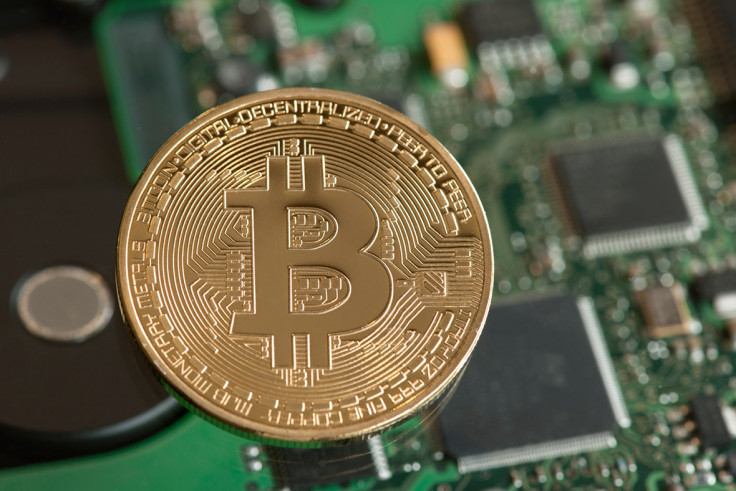DCG's Barry Silbert: 'We're excited by blockchain – but just as excited about Bitcoin'

Barry Silbert has spent a lot of time and care shaping his technology investment company, Digital Currency Group. Its mission: to accelerate development of a better financial system.
DCG is set up as company, as opposed to a fund, because it provides the flexibility to invest in companies, incubate companies, buy companies and hold permanent capital "so the money that we raise stays within the company; instead of having a fund where you have to return capital to your limited partners, we get to redeploy capital within our company," said Silbert.
He said the other benefit of being set up as a company is that you can take a company public. "We do view that as a path we are likely to go down." Silbert name-checks companies he admires such as Softbank, IAC, Naspers and Liberty Media – an emphasis on media is not surprising since the latest company DCG bought is industry leading media and events group, Coindesk.
The other two companies are Greyscale Investments, manager of the publicly traded Bitcoin Investment Trust, and the fully regulated digital currency trading operation Genesis Global Trading. In addition to the wholly owned subsidiaries, DCG has investments of between 2% and 5% in some 63 companies spread across 20 countries.
Bitcoin and blockchain
DCG's early investments included Ripple, Coinbase and BitPay; a more recent backing is Skuchain, which proposes ledger agnostic blockchain technology to optimise the clunky, expensive end of global supply chains. IBTimes asked if DCG's future investing strategies might err on the side of blockchain rather than Bitcoin.
"No," said Silbert. "I am one of the few investors out there that is as excited, if not more excited, about Bitcoin as a currency and Bitcoin as a rail. We certainly have made investments in blockchain-focused businesses – Skuchain is an example."
He added that a number of the blockchain-focused businesses DCG has invested in are non-financial applications, such as identity-focused Onename and more recently Civic, just started by Vinny Lingham who founded Gyft.
"We are very excited about the use of blockchain, whether it's Bitcoin or not, but we are as enthusiastic as ever about Bitcoin as a global currency, and really more importantly Bitcoin as a global financial rail."
Exchange strategy
Silbert has strategically deployed investment for the benefit of the entire cryptocurrency ecosystem by backing 15 exchanges around the world and 40 different currency pairs. "To be a more efficient, faster and cheaper way to send money around the world, you have to be able to get in and out of Bitcoin, you need to have a liquid exchange on either end of the corridor.

"So we have investments in the leading exchange in India – called Unocoin; the leading exchange in Korea called Korbit; the leading exchange in Japan called bitFlyer; the leading exchange in Kenya called BitPesa; the leading exchange in Malaysia, BitX ... I could go on."
Blockchain hype of recent weeks has been about banks courting distributed ledger consortia and big ticket plays by the likes of Blythe Masters' Digital Asset Holdings. So is this an area DCG has any interest in? "I wouldn't rule anything out and I certainly wouldn't dismiss any efforts. Our mission is to accelerate the development of a better financial system; it's not just development of a better Bitcoin financial system, and so we want to back the best teams, who have the biggest ideas, unique solutions to big problems."
Blockchain consortia
"Now if that team and that problem and that solution all happen to revolve around a private federated blockchain being deployed at banks then, you know, we will invest. But as of right now, I'm sceptical of ideas that revolve around bank consortia. If you look at the history of innovation on Wall Street and financial markets, it tends to come from outside of the incumbents. The types of companies we are backing are going to be the Skuchains, who are working with certain incumbents, but they are very much attacking it from the outside in."
Regarding recent news about the R3 group and Digital Asset Holdings, Silbert said these efforts were positive for the whole industry. "I think it's great that there is an appreciation for the potential for the technology, but I also believe from an innovation perspective, a decentralised open protocol such as Bitcoin enables permissionless innovation. That's a term that I really like – 'permissionless innovation', because anybody who has an idea and has a solution can tap into or can leverage the Bitcoin blockchain. Whereas if you have a series of private federated blockchains being developed by incumbents, they are going to decide the rules, they are going to decide who gets access to it, and ultimately those efforts, I think, will be much slower moving than ones that are happening around the edges on Bitcoin."
BitPesa
On the subject of incumbents and innovation, Silbert cites the travesty currently happening to BitPesa, another company DCG backs. BitPesa became embroiled in a court case after MPesa provider Vodafone/Safaricom tried to say the company did not meet AML regulations. But Safaricom was itself once a mere pretender, touting a new technology, at the mercy of the Central Bank of Kenya and the government – an irony not lost on the startup community.
"It's really amazing – you watch Safaricom go on 60 Minutes and talk about how difficult it was to operate and compete with these incumbents and then they go and make this claim that BitPesa is not regulated, when the government has pronounced multiple times that they are not going to regulate.
"I think MPesa has proved that in a developing country where banking services are not yet widely available but mobile connectivity is, digital money can thrive and prosper. I also think MPesa will absolutely be displaced by Bitcoin, or some type of digital currency, because it provides all the same benefits and it's faster and it's cheaper and it's global."
Government issue digital currency
Another topic which looms large within the world of central banks and governments around the world is the drive to issue digital currencies, with China recently stating its intention.
Silbert said: "Yeah, I mean fiat currency today is digital. So it's unclear to me, when you read about China or another country talking about issuing digital currency what is meant by that – it's already digital.
"It's kind of hard to comment on it without really understanding – what do they mean? What's different from the currency that exists that can be held electronically? They are certainly not going to agree to a finite supply like Bitcoin; they are certainly not going to agree to the free flow of money across borders without going through a regulated endpoint. I'm not really sure what they are talking about doing."
© Copyright IBTimes 2025. All rights reserved.






















